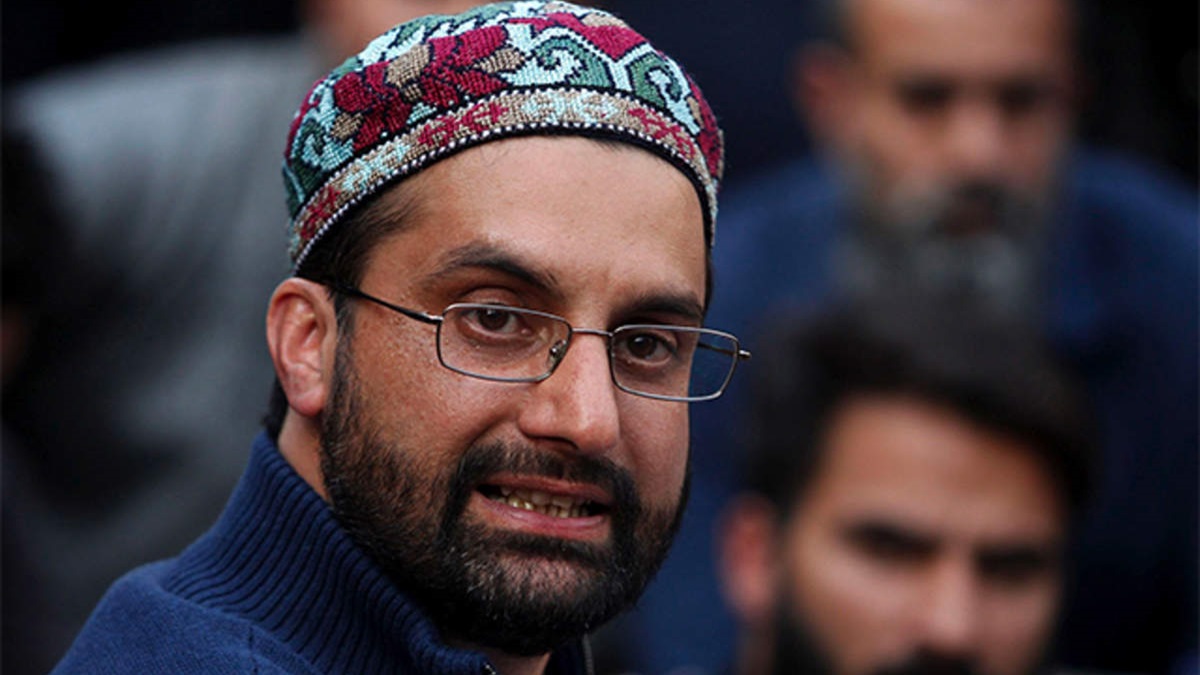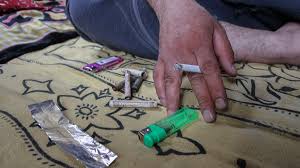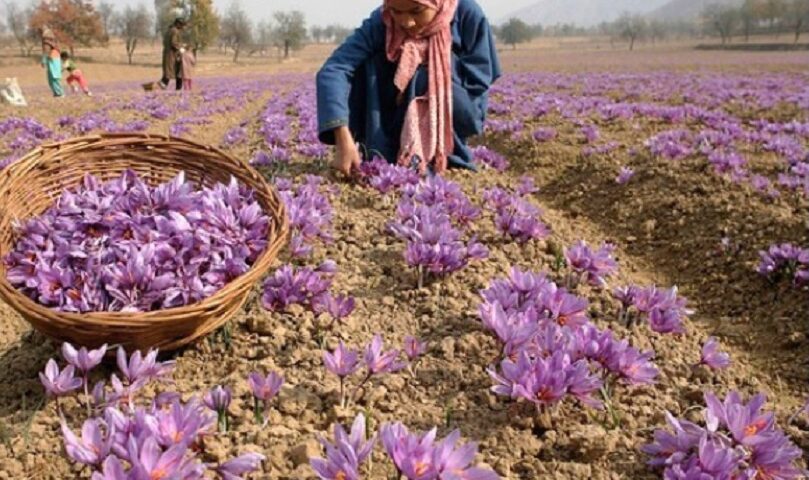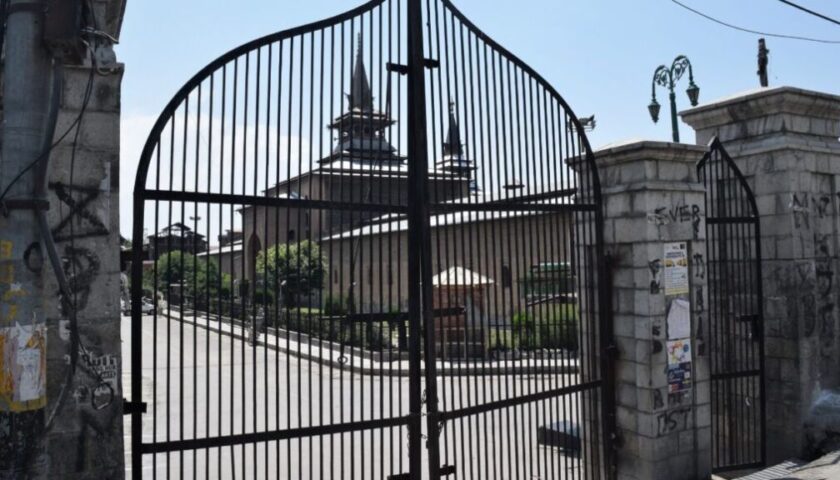Hurriyat Chief Calls for Compassionate Approach Amid Rising Health Concerns
By: Javid Amin | 29 October 2025
Hurriyat Conference chairman Mirwaiz Umar Farooq has appealed to the Central government to release ailing separatist leaders Shabir Ahmad Shah and Mohammad Yasin Malik on humanitarian grounds, citing their worsening health conditions and the moral responsibility of the state to uphold human dignity.
In a public statement issued from Srinagar, Mirwaiz stressed that the appeal is not rooted in political considerations but in basic human compassion.
“Humanity should come before politics. We are not asking for amnesty; we are appealing for empathy,” Mirwaiz said.
Health Concerns: “A Life-and-Death Situation”
The appeal follows alarming reports about the deteriorating health of Shabir Ahmad Shah, chief of the Democratic Freedom Party, and Mohammad Yasin Malik, chairman of the Jammu and Kashmir Liberation Front (JKLF), both of whom have been incarcerated for several years in high-security prisons outside the Union Territory.
According to Mirwaiz, Shah’s wife informed him that their daughter recently visited her father in jail for the first time in over a month and found him in a critical state, battling multiple medical complications without timely medical intervention.
The family has since appealed to authorities to allow Shah’s transfer to his home in Srinagar, proposing that the residence be converted into a temporary jail to facilitate medical care under supervision.
Mirwaiz echoed this suggestion, emphasizing that such an arrangement would uphold both security protocols and humanitarian responsibility.
“It is not about ideology — it’s about the right to life and care,” he said. “A humane state does not let its prisoners die unattended.”
Family’s Plea: “Let Him Come Home”
Shabir Shah’s family has made repeated requests to shift him to home custody, citing inadequate access to medical specialists and lack of emotional support in confinement.
His wife, Dr. Bilquis Shah, reportedly conveyed through media channels that Shah’s health has “deteriorated alarmingly” and that he needs constant medical supervision, which the current facility cannot provide.
“We are not seeking freedom. We are seeking medical dignity,” she said.
The family’s appeal has found resonance among human rights defenders and political observers who argue that compassionate release for critically ill prisoners is consistent with Indian constitutional and legal principles, including provisions under the Code of Criminal Procedure (CrPC) allowing bail or parole on medical grounds.
Broader Context: The Humanitarian vs. Security Debate
Mirwaiz’s statement comes at a time when several Kashmiri legislators, activists, and civil society organizations have urged the government to review the conditions of Kashmiri prisoners, particularly those facing health challenges or serving prolonged detentions outside J&K.
Many of these prisoners are housed in facilities hundreds of kilometers away from their families, often in Delhi’s Tihar Jail or other central prisons, making visits logistically and emotionally difficult.
Civil society groups argue that such transfers deepen alienation and distress in a region already fraught with political sensitivities.
“Repatriating prisoners to their home state is not leniency — it’s humanity,” said a senior advocate associated with J&K Human Rights Forum.
The issue has also triggered debate on whether political and security policies are overshadowing humanitarian obligations, particularly for prisoners suffering from chronic illnesses.
Legal & Human Rights Framework
Under Article 21 of the Indian Constitution, every individual — including prisoners — is entitled to the right to life and personal liberty, which courts have interpreted to include access to proper medical care.
The Supreme Court of India, in multiple judgments, has reaffirmed that “denial of medical treatment to a prisoner amounts to cruel and inhuman treatment.”
Organizations like Amnesty International and Human Rights Watch have previously called for periodic health reviews, family access, and medical parole for aged and ill detainees, irrespective of their political status.
Mirwaiz’s appeal, therefore, taps into a larger moral and legal discourse — urging the Centre to demonstrate compassion without compromising national law.
Political and Public Reactions
Reactions to Mirwaiz’s statement have been measured yet significant:
- PDP spokesperson said the government must act “with conscience and constitutional responsibility.”
- National Conference (NC) refrained from direct comment but acknowledged that “humanitarian concerns should guide prison policy.”
- BJP leaders, however, dismissed the appeal as an “emotional diversion,” asserting that decisions on such matters rest with the judiciary and must consider “national security sensitivities.”
Human rights advocates have since renewed calls for transparent medical audits of prisoners held on long-term charges.
“A government’s strength is tested not in how it punishes, but in how it protects the weak,” noted senior journalist Gowhar Geelani.
The Human Angle: Compassion Beyond Conflict
For many in Kashmir, the appeal has reignited conversations about the line between justice and vengeance. While political divisions remain deep, there is growing recognition that prolonged incarceration of ailing detainees serves neither justice nor reconciliation.
Locals recall that both Yasin Malik and Shabir Shah have been key figures in Kashmir’s political history — controversial yet deeply symbolic of the region’s tumultuous past. Their prolonged imprisonment, combined with failing health, adds a human tragedy to an already complex political narrative.
“We can disagree politically but still act humanely,” said a Srinagar-based cleric. “That is what defines a civilized society.”
Editorial Reflection: The Politics of Humanity
Mirwaiz Umar Farooq’s call may not immediately alter the Centre’s policy, but it reframes the debate from one of ideology to human dignity. In an era when governance is often defined by rigidity, his statement challenges both Delhi and Srinagar to reconcile law with empathy.
The appeal also serves as a reminder that in conflict zones like Kashmir, healing often begins not with political concessions but with small acts of humanity.
As one human rights activist put it:
“Empathy doesn’t weaken the state; it strengthens its moral authority.”




